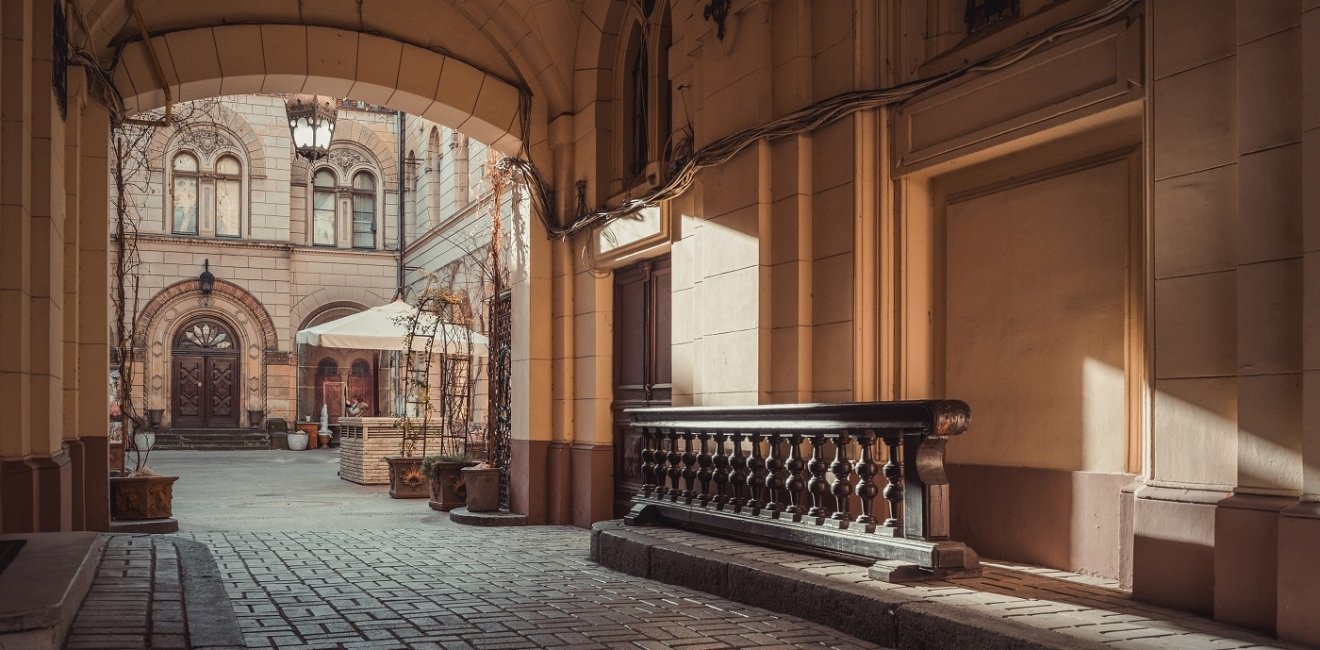
A blog of the Kennan Institute
Odesan evenings in June can be stunning in peacetime, as the scent of generous flowering trees and plants unfolds over a city luxuriating in soft evening breezes off the Black Sea. A vibrant beach scene transforms as daytime sun worshippers replace hedonistic nighttime clubbers. Understanding why so many who have passed through the city proclaim it to be extraordinary requires little imagination.
This past June, alas, was not a time of peace.
The Odesa Philharmonic, led by Hobart Earle, traditionally closes its season with a rousing celebration. But the orchestra’s final concert this year, performed on the evening of June 14, almost didn’t take place, as air raid sirens sounded and the electricity went off just as the orchestra was warming up during a last-minute rehearsal. The orchestra scrambled to use temporary generators to cast some light on their music stands. Maestro Earle wondered how he could conduct a Brahms symphony in the dark. The phrase of the hour was “stay flexible,” which is how Ukrainians keep going despite the travails that have beset them since the Russian full-scale invasion.
Once the all clear sounded, the lights came back on, and audience members had taken their seats, the orchestra began with the premier of a haunting new work, Evgeni Orkin’s Elegy (Op. 90). Orkin composed the piece in memory of the Odesa victims of the current war. This somber, moving, and, at times, disturbing eight-minute reflection on the horror of loss in wartime begins with a momentary crash of cymbals before moving to a quietly sorrowful meditation on war’s assault on the lyricism of peace. The orchestra and audience stood in a silence at the end.
Orkin’s piece set a somber mood in a distinctly modern style. His life and career track with those of many other top Ukrainian musicians of his generation. Born in Lviv in 1977, he studied clarinet and composition at the Kyiv Conservatory before seeking further training in the Netherlands. He kept a foothold in the Ukrainian classical music scene even as he pursued opportunities in Europe. He played as principal clarinet in the Kyiv Camerata ensemble during the early 1990s, while simultaneously co-founding the Open-Lift project promoting contemporary music in Utrecht.
Orkin began composing chamber symphonies; symphonies; concertos for violin, piano, saxophone, and clarinet; and operas. His chamber opera The Fairy Tale of the Forest Kings (Das Märchen der Waldkönigin Ach) brought a Ukrainian fairytale to the stage at the Staatstheater Wiesbaden in 2023, while his Odessa Rhapsody earned him the European Music Prize awarded by the mayor of Berlin. This June, his Todesfuge, inspired by Paul Celan’s poem about the Nazi genocide of the Jews, premiered at the Vienna Festival. This background helps to explain how the Odesa concert came together.
The concert closed with a luxurious performance of Johannes Brahms Symphony No. 2 in D major, op. 73. Brahms composed this pastoral work during a summer sojourn in the Austrian town of Pörtschach am Wörthersee. Now much beloved, Brahms warned his publisher that he had “never written anything so sad, and the score must come out in mourning.” Concertgoers ever since have admired the gripping beauty found in the composer’s self-proclaimed sense of melancholy. In the hands of Earle and his orchestra, the piece captured both the sorrow of this moment and the bucolic beauty of the exceptional city they call home.
During the leadup to the performance, the orchestra’s website urged people to consider attending this concert, saying that Brahms’s symphony “is full of light, gentle melodies. You will definitely like it and it will put you in a great mood [with] an incredible charge of energy,” since the score would be like “musical medicine, which is so necessary for all Ukrainians.” An additional benefit: the audience “will be able to listen to the world premier of a Ukrainian composer and be at the center of the musical life of Ukraine.” When Maestro Earle lowered his baton that evening (and on the orchestra’s season), it was before an audience steeped in both melancholy and beauty.
The opinions expressed in this article are those solely of the author and do not reflect the views of the Kennan Institute.
Author

Former Wilson Center Vice President for Programs (2014-2017); Director of the Comparative Urban Studies Program/Urban Sustainability Laboratory (1992-2017); Director of the Kennan Institute for Advanced Russian Studies (1989-2012) and Director of the Program on Global Sustainability and Resilience (2012-2014)

Kennan Institute
After more than 50 years as a vital part of the Wilson Center legacy, the Kennan Institute has become an independent think tank. You can find the current website for the Kennan Institute at kennaninstitute.org. Please look for future announcements about partnership activities between the Wilson Center and the Kennan Institute at Wilson Center Press Room. The Kennan Institute is the premier US center for advanced research on Eurasia and the oldest and largest regional program at the Woodrow Wilson International Center for Scholars. The Kennan Institute is committed to improving American understanding of Russia, Ukraine, Central Asia, the South Caucasus, and the surrounding region through research and exchange. Read more

Explore More in Focus Ukraine
Browse Focus Ukraine
Talking to the Dead to Heal the Living

Ukrainian Issue in Polish Elections


